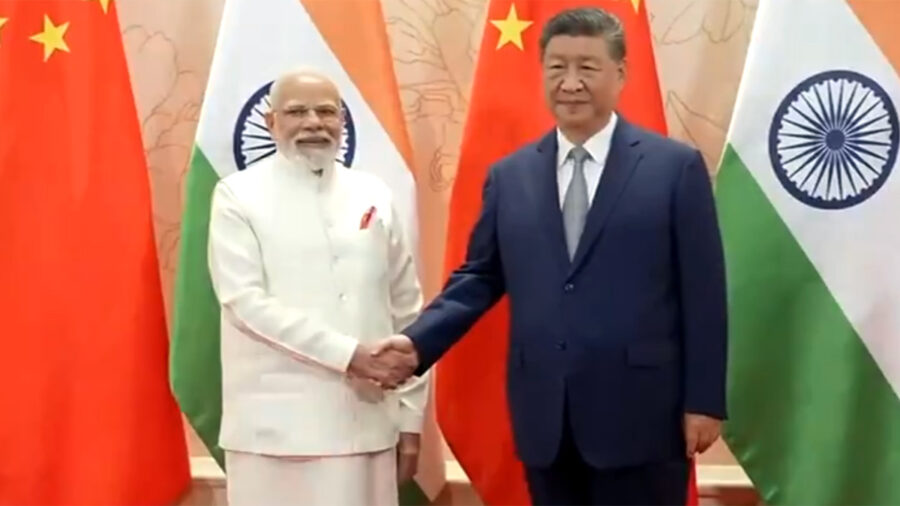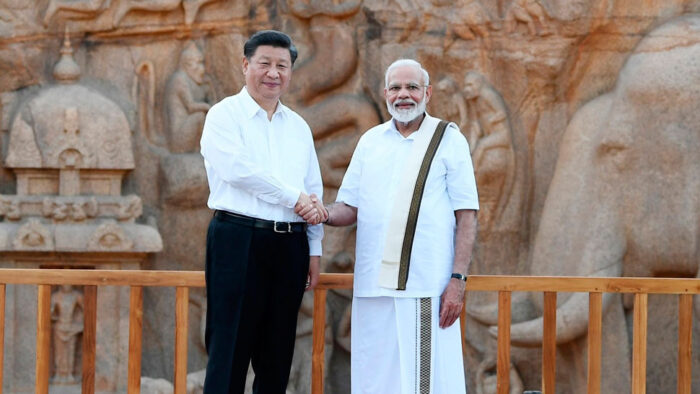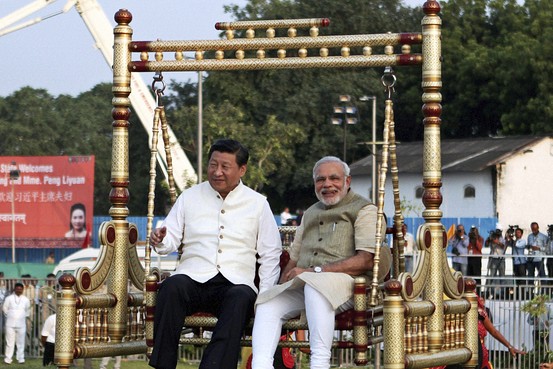
As US Tariiffs of 50 % announced by Presudent Donald Trump came into effect in India from August 27, 2025, all eyes was on India how it would deal with this situation – Trade War. Hence the SCO Tianjin Summit 2025 In China assumed huge importance. The fact that Prime Minister Narendra Modi was visiting China after the gap of nearly 7 years.
It was the first visit by Modi to China after the violent clashes at Galwan that saw 20 India soldiers martyred . It may be recalled that the Galwan clash occurred on June 15-16, 2020, resulting in the deaths of 20 Indian soldiers, including Colonel B Santosh Babu, the Commanding Officer of the 16 Bihar Regiment.The violent face-off between Indian and Chinese troops in the Galwan Valley, Eastern Ladakh, was a significant escalation in the border standoff between the two countries.
And before Galwan, India and China had the Doklam border standoff in 2017 . A disputed territory located at the tri-junction of India, China, and Bhutan. According to media reports it was learnt that the Chinese troops began constructing a road in the Doklam area on June 16, 2017, which India saw as a threat to its security and Bhutan’s sovereignty. Indian troops intervened to stop the Chinese construction, leading to a 73-day standoff between the two countries.Doklam is close to the Siliguri Corridor, a vital stretch of Indian land connecting the northeastern states to the mainland
And when Prime Minister Narendra Modi met Chinese President Xi Jinping the Godi media went overboard and put Galwan on the backburner and insisted the ties between the two nations were in reset mode. A chaneel went on to put a headline – Elephant and the Dragon Tango. BUt unfortunately Galwan issue was not raised by Modi in his talks with Xi Jinping. And naturally his silence was taken note off by the Opposition – Congress.
If Galwan was given a miss then Prime Minister Narendra Modi chose to also not raise China’s support to Pakistan during Operation Sindoor. Lieutenant General Rahul R Singh, deputy chief of army staff while speaking at the Federation of Indian Chambers of Commerce and Industry (Ficci) “New Age Military Technologies” event was quoted as saying that – India’s four- day Operation Sindoor revealed the emergence of a complex adversarial alliance, with China providing real-time intelligence support to Pakistan while Turkey supplied advanced drone technology and personnel.
Singh’s most significant revelation concerned China’s deep involvement in the conflict through what he termed the “borrowed knife” doctrine. Chinese intelligence provided Pakistan with real-time satellite inputs on Indian troop deployments and weapon positions, enabling Pakistani officials to reference specific Indian vectors during director general of military operations-level talks – information only accessible through Chinese surveillance networks. The Prime Minister did mention Pahalgam in his address on terror with Pakistan Prime Minister Shehbaz Sharif in attendence but China’s tacit support did not find a mention.
Interestingly after meeting Modi, Pakistan’s Army Chief Field Marshal Asim Munir had his first meeting with Chinese President Xi Jinping, along with Pakistani Prime Minister Shehbaz Sharif and held wide ranging taks on bilateral and regional coopration. Enough to give India someting to ponder.
Moreover, It was not the first time Modi and Xi Jinping showcased their bonhomie. It was seen at Mahabalipuram in 2019 too. Where donning the traditional Tamil attire of ‘veshti’ (white dhoti), half-sleeve white shirt and angavastram over his shoulder, Modi welcomed Xi at Mamallapuram, also known Mahabalipuram, for the second informal India-China Summit. Then Galwan followed soon after in 2020 .

China’s President Xi Jinping shakes hands with India’s Prime Minister Narendra Modi during their visit to the Pancha Rathas complex in Mamallapuram on the outskirts of Chennai (Photo: PIB)
Modi and Xi Jinping camaraderie was seen in 2014 ( September 18, 2014) when Modi showcased Gujarati Culture to the Chinese President at Ahmedabad. And two leaders showed their bonding when they sat and had conversation while sitting on a traditional swing on the Sabarmati River front .

Prime Minister Narendra Modi and Chinese President Xi Jinping sitting on a traditional swing on the Sabarmati River front in Ahmedabad
Given the past bonhomie’s which did not ensure trust , it is essential that India should be wary of China. Will Tianjin meeting with all good words and intent deliver results ? or it will end up like previous one’e remains to be seen .
The overtures towards China has not enthused Arunachal Pradesh Chief Minister Pema Khandu . Before the SCO meeting, he reportedly stated that the world’s largest dam project on the Yarlung Tsangpo river built by China , the Tibetan name for Brahmaputra, is matter of concern for not only for his state but the North East as well . He termed it as a ‘water bomb’ and cannot be ignored or taken lightly. Khandu was blunt as far relationship with China as he was quoted as saying – “The issue is that China cannot be trusted. No one knows what they might do”. While the Godi media is exuberant over Modi- Xi bonding, there are some voices like Khandu who want a cautious approach while dealing with China. So watch this space.


















